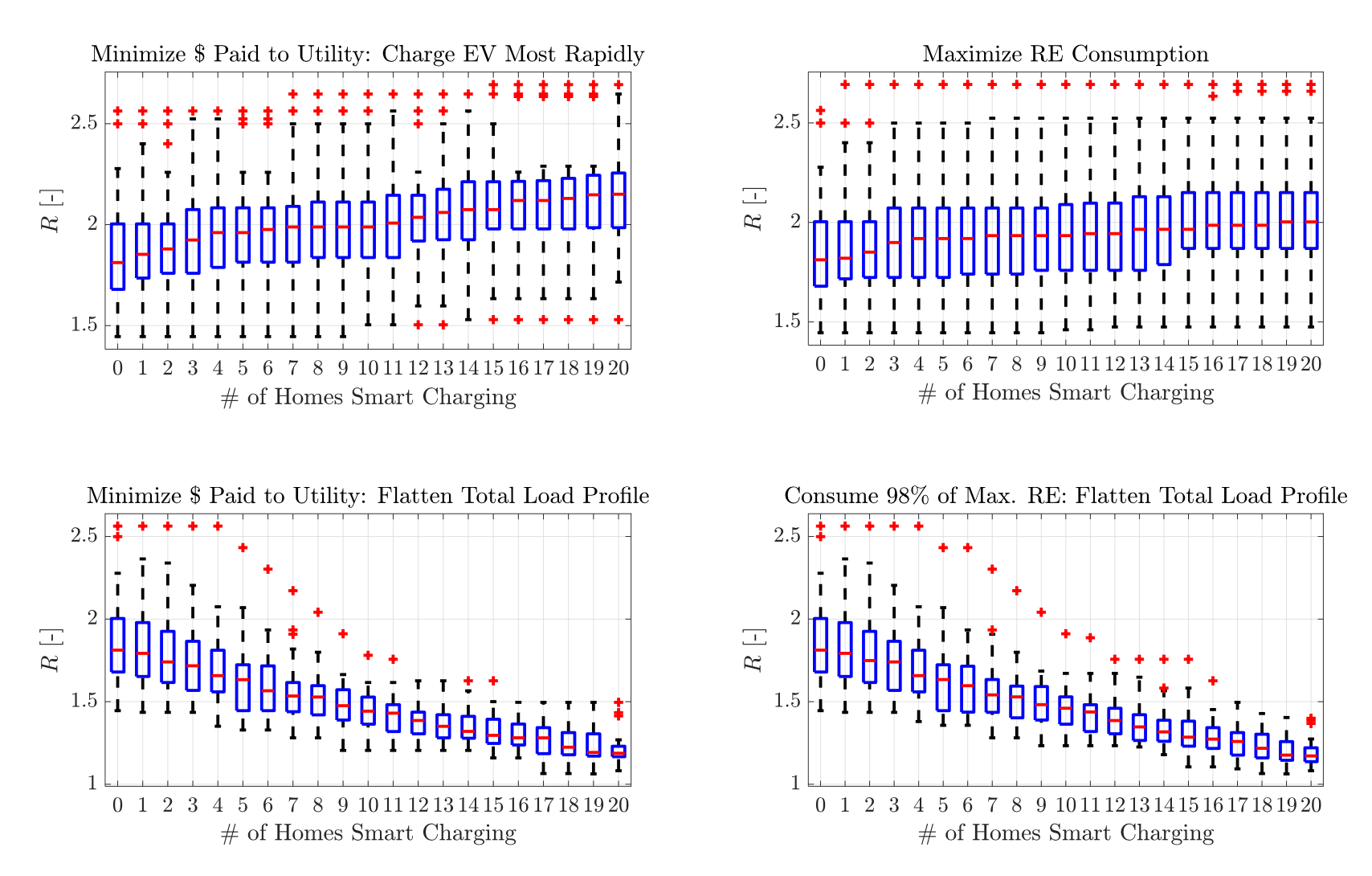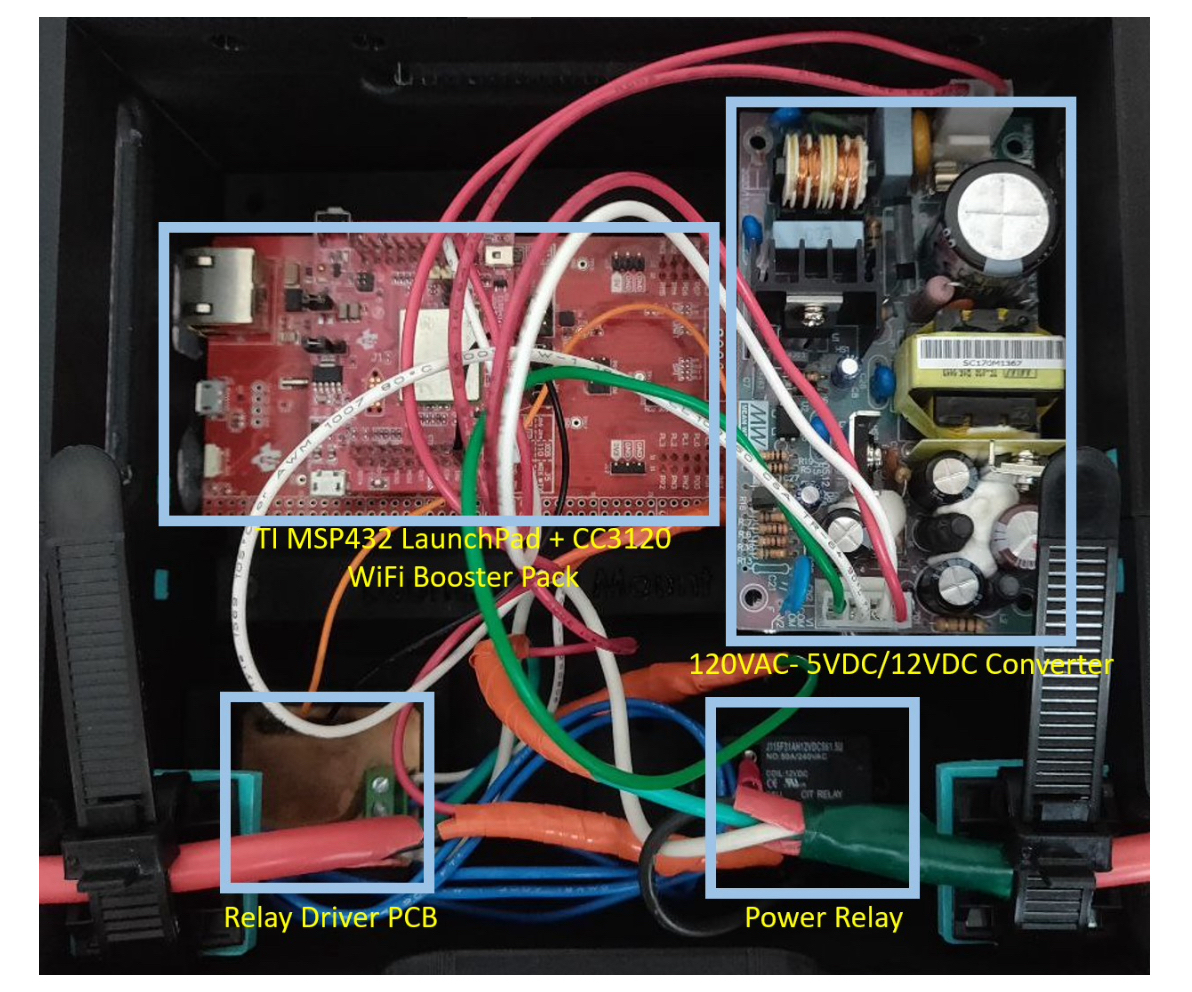Consumer interest in electric vehicles (EVs) is on the rise due to increasing environmental awareness, decreasing vehicle costs, and regulatory pressures and tax incentives. More EVs means more uncontrolled EV charging, which could exacerbate the evening surge in power demand, degrade power quality, and overload transformers in distribution networks. Smart charging (SC), where EV charging is optimally distributed over time to balance the benefits of the EV owner/grid operator, has emerged to combat these demand spikes. However, many SC solutions assume a decision-making agent controls the charging of multiple EVs, which is often not the case in a neighborhood setting.
Flexible smart charging solution balances customer demand with power supply to maximize benefits
The solution is a set of SC algorithms and a hardware prototype for use in a single-family residence that controls EV charging to the benefit of both EV owners and grid operators. Users specify their charging preferences based on utility-published rates, a grid mix signal, and vehicle charging status and storage capacity. The smart charger determines a charging profile that meets the user's preference and minimizes the load on the grid. This SC solution maximizes the use of renewable resources and minimizes energy costs, closes the gap between grid capacity and consumer demand, and reduces the additional stress and reliability issues uncoordinated EV charging could have on the power grid.
- Consumer-customizable: Allows the EV owner to charge according to their preference (e.g., minimize cost, maximize carbon-free energy usage, minimize charging time, or minimize battery degradation).
- Grid-favorable: Selects charging profiles that delay charging to avoid excessive loads on the power grid.
- Designed to optimize: Uses on/off SC to optimize EV charging by considering the best time to charge based on the grid mix and power pricing.
- Flexible operation: Employs cloud-based architecture to run the algorithms, access vehicle information, and send commands to the hardware prototype.
- Optimized residential EV charging
- Power grid optimization

Distribution of R values vs. participation in SC for four runs of the random experiment. Distributions are represented by box plots. Red lines represent the median value, blue boxes represent the interquartile range, black lines mark maxima and minima that are not outliers, and red + signs mark outliers.

Modules inside the final prototype.
